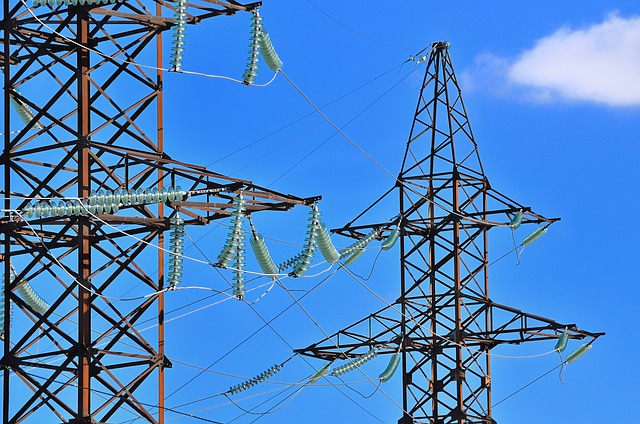
COVID-19
What effect does the coronavirus have on the engineering sector?
Read a summary using the INOMICS AI tool
As isolation and the coronavirus become a part of daily life and all industries are affected, the true extent of the ramifications of this pandemic have become a little clearer. Engineering, too, is not immune to the illness which has already taken thousands of lives, and is set to take thousands more. The sector will face dramatic changes over the coming months as it attempts to adapt and survive in a world where for many people even going outside is banned. So what is the fate of engineering?

Construction industry hit
One of the most important things that will affect the engineering sector is the collapse of global supply chains. China, which is beginning to recover but was home of the initial outbreak, produced 50% of the world’s steel, 56% of the world’s aluminium, and 58% of all concrete products in 2019. Heavily reliant on Chinese imports, German companies have not been receiving the supplies they need, with ships left in Chinese harbours to avoid spreading the virus. It’s clear that the ramifications of this will be widespread: if businesses can’t get the supplies they need from their Chinese suppliers, they won’t be able to do work, even if they are allowed on the building site.
But it’s not just China. Italy is an important hub for construction, too, with 16% of marble used in Italy produced in-country. Some of the biggest lift and hoist manufacturers are also based in Northern Italy, which has been hit the hard by the pandemic, meaning businesses won’t receive much of the equipment they need.
Events cancelled
Event cancellation has, as in all industries, been a big problem for engineering, too. Organisations are shutting their doors in a bid to stop the spread of the virus. The Engineers Ireland National Conference, for example, was recently rescheduled. However, Engineers Ireland is attempting to put its events online and organise virtual meetings to keep its members in the loop, and is trying as much as possible to remain in business.
This is the case across many different businesses. While it may not be possible for all engineers to work at home, the coronavirus doesn’t necessarily mean that contracts and bids are lost by companies - more likely, they will simply be postponed until the situation has calmed down, and events will continue to be rescheduled or held online using programs like Zoom.
It isn’t all bad news
Engineers are, however, coming up with innovative ways to help with the current coronavirus pandemic situation. For example, some are using their 3D printing technology to crowdsource protective visors and other simple equipment which is currently running low.
And engineers aren’t being lax in other areas, either. Engineers are rapidly increasing the production of things like ventilators and test kits to take some of the pressure off of healthcare professionals. Companies normally in competition are working together to develop low-cost ventilators, for example. A robot has even been developed which helps keep hospitals clean, taking pressure off of cleaners.
The John Hopkins Center for Systems Science and Engineering used its IT expertise to create an online dashboard which tracks the spread of the virus across the world. It lists the number of confirmed cases overall and by country, how many people have died from the illness, and how many have recovered. (As of the beginning of April, around 300,000.) Lauren Gardner led the launch of the map.
Various governments have also introduced wage compensation schemes, which enables workers who aren’t able to do their jobs, or who are forced to work fewer hours due to the virus, to receive enough money to get by during this time. The amount received varies from country to country: some in Germany may receive 90 or even 95% of their regular wage, whereas in the UK the standard is 80%, and Ireland a little lower, at 70%.
The U.S. Army Corps of Engineers has also been working hard to build makeshift field hospitals to deal with the increasing demand for beds. New York has been especially hard hit, and some, including Gov. Andrew Cuomo, are worried the hospital system won’t be able to cope. Places like military bases and student accommodation are being turned into hospitals, temporary steps which may ease some of the pressure.
Moving forward
Broadly, engineering and utility firms, such as water, gas, electricity and broadband services, will need to figure out ways to function while minimising the impact their continued presence will have on the spread of the virus. For some this means working from home, but others will need to visit the plants and factories which keep our utilities running. Appropriate health precautions are of course necessary in order to keep workers safe and healthy.
Civil engineers have a real responsibility for the future. By some analyses, the covid-19 coronavirus pandemic was partly caused by poor hygiene infrastructure, sometimes known as WASH (water, sanitation, hygiene). As we go into the future, it remains important to remember that at least as and perhaps more important than a cure for illnesses is preventing them in the first place. Engineers, particularly civil and health engineers, have a direct role in this, seeing as they often work with waste disposal and water management systems.
But engineers can only do so much. If governments don’t shape up and see that investing in health infrastructure is an essential way to prevent the spread of viruses like corona, engineers won’t be able to do their jobs and help. Funding needs to come directly from governments who see this as a priority. The coronavirus is a wake up call: we weren’t well enough prepared, our health infrastructure wasn’t robust enough, and as a result we are all suffering. The power of engineering must not be neglected.
-
- PhD-Studiengang
- Posted 11 months ago
PhD Programme in Economics (with optional M.Sc. Economic Research)
Starts 1 Oct at University of Cologne and Universität zu Köln, WiSo-Fakultät and Cologne Graduate School in Management, Economics and Social Sciences in Köln, Deutschland -
- Konferenz
- Posted 3 weeks ago
44th RSEP International Conference on Economics, Finance and Business
Between 27 Nov and 28 Nov in Rome, Italien
-
- Konferenz
- Posted 2 weeks ago
Emerging Macroeconomic, Financial, and Environmental Policy Challenges in an Era of Policrises and Rising Uncertainties
Between 23 Mar and 24 Mar in Milan, Italien











